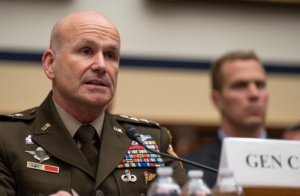
The U.S.’ top military leader in Europe has said Ukraine is set to run out of artillery rounds and air defense interceptors “in fairly short order,” telling lawmakers on Wednesday he believes Kyiv “will not be able to prevail” against Russia without continued U.S. support. Gen. Christopher Cavoli, commander of U.S. European Command/NATO Supreme Allied Commander Europe, testified to the House Armed Services Committee that Ukraine has been rationing artillery rounds and is currently outshot by the Russians ‘five-to-one,’ with…

 By
By 











